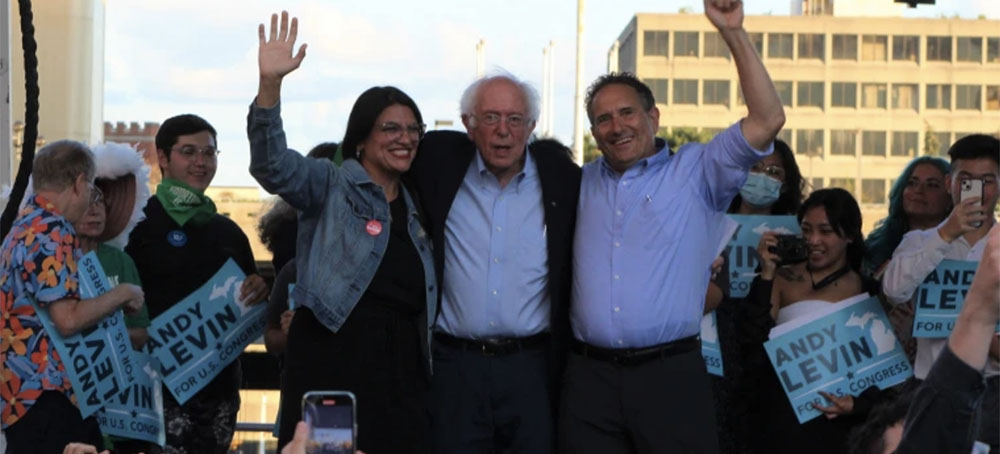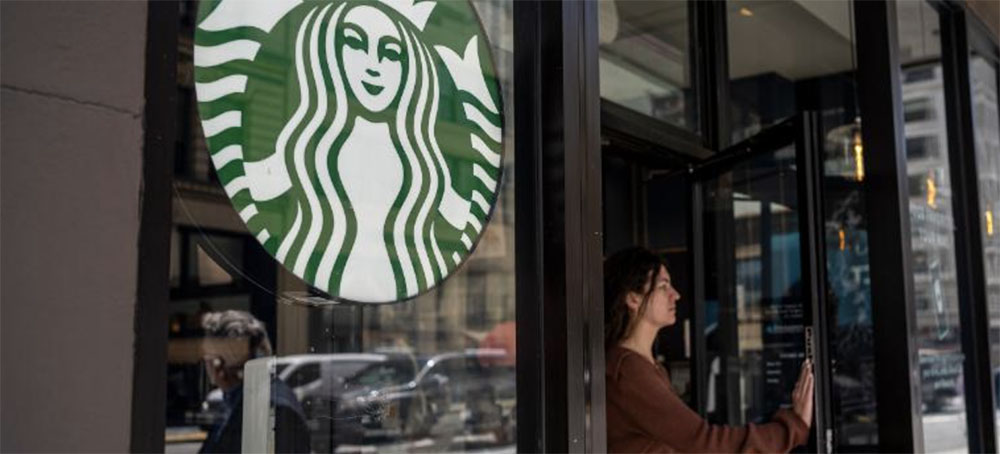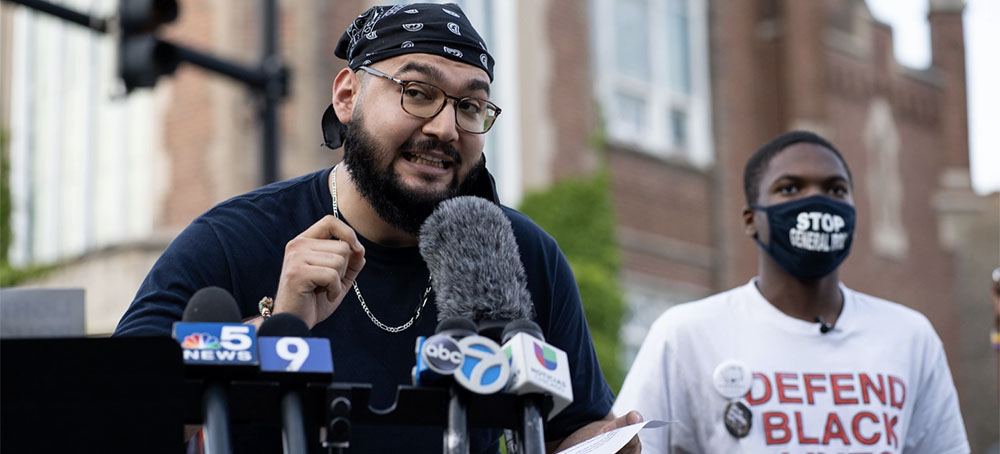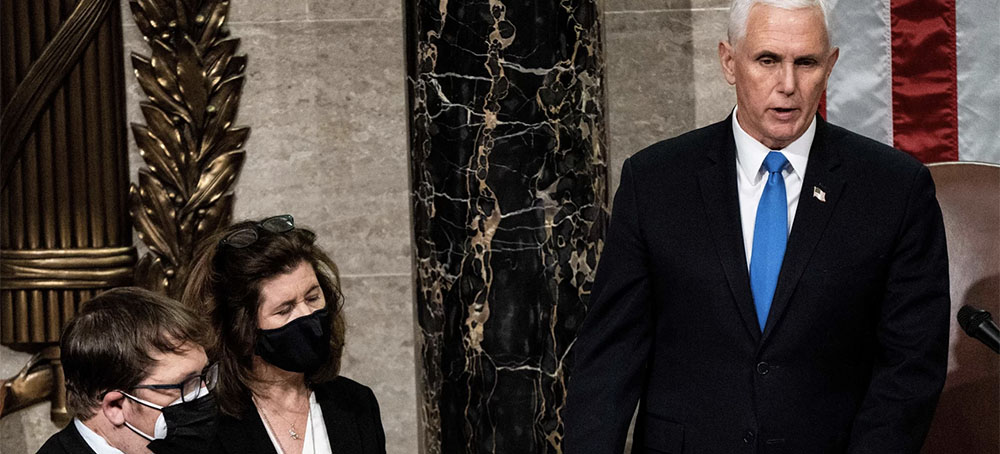Live on the homepage now!
Reader Supported News
 Jon Stewart. (photo: Drew Angerer/Getty Images)
Jon Stewart. (photo: Drew Angerer/Getty Images)
"I'm used to the lies, I'm used to the hypocrisy, I'm used to the cowardice, I'm used to all of it, but I am not used to the cruelty," Stewart told reporters outside the Senate during a news conference called by the bill's advocates.
Republicans "haven't met a war they won't sign up for and they haven't met a veteran they won't screw over," Stewart said.
The military burn pits bill, which initially passed the 100-member Senate with the support of 34 Republicans and all 50 Democrats, would expand access to health services and disability benefits for veterans who were exposed to toxic smoke from the U.S. military's use of burn pits to dispose of waste on foreign bases until the mid-2010s.
The bill will return to the floor for another vote on Monday, Senate Democratic Leader Chuck Schumer said on Thursday.
Rare cancers and respiratory illnesses were found to have been caused by fumes from burning everything from rubber, chemical waste, ammunitions and human feces in the burn pits.
A technical correction held up the legislation in the U.S. House of Representatives, then Republican Pat Toomey blocked a quick procedural passage in the Senate, citing concerns with how money was appropriated in the bill.
The bill, without Toomey's amendment, came up for a final vote in the Senate late on Wednesday, and it won the support of 55 senators, five votes short of the 60 needed for passage.
The vote took place after news broke that Democrats had reached an agreement on a separate bill that would allow them to pass without Republican votes a $430 billion climate and drugs bill that contained many of President Joe Biden's priorities.
At that point, many Republicans who had initially voted in favor of the bill declined to do so again.
For his part, top Senate Republican Mitch McConnell blamed Schumer, Biden's fellow Democrat, saying there was "no excuse why the Democratic Leader should continue to block Senator Toomey’s commonsense amendment."
Go get 'em Jon!
Boo Hoo Moscow Mitch! "It's not my fault!"
Pat Toomey is not running for re-election so he can afford to screw things up.
JOHN FETTERMAN & MALCOLM KENYATTA are running for Senate in Pennsylvania and both are immensely popular. Support candidates who support Americans!
Take care of VETERANS who served this nation!
Republicans obstructed the 9/11 Health Bill as well:
Congress Finally Passes A 9/11 Health Bill
The measure will effectively make health care permanent for people who came forward to help in the aftermath of the terror attacks.
https://www.huffpost.com/entry/911-bill-passes-congress_n_56742074e4b014efe0d51b50
 Bernie Sanders campaigns for Andy Levin and Rashida Tlaib in Pontiac, Michigan, July 29. (photo: Ali Harb/Al Jazeera)
Bernie Sanders campaigns for Andy Levin and Rashida Tlaib in Pontiac, Michigan, July 29. (photo: Ali Harb/Al Jazeera)
Left-wing US senator implicitly hits out at the pro-Israel group AIPAC at a rally for Rashida Tlaib and Andy Levin.
In Pontiac, Michigan – a town north of Detroit – on Friday, Sanders had a new angle to discuss beyond his usual anger about the cost of healthcare and the growing gap between the poor and the ultra-rich.
As he campaigned for his progressive allies, Congress members Andy Levin and Rashida Tlaib, the senator raged against the influence of money in politics, implicitly hitting out against the American Israel Public Affairs Committee (AIPAC), a lobbying group which has been spending millions of dollars to defeat progressives.
“This election is particularly important. It’s important because Andy, based on his work, deserves to be reelected; Rashida deserves to be reelected,” Sanders said. “But it’s equally important in saying that the people of Michigan have got to tell these billionaires in their corporate PACs [political action committees], they cannot buy our democracy.”
The rally in Pontiac, where Levin is running, came days before the Michigan Democratic primary on August 2, where pro-Israel groups – spearheaded by AIPAC – have been spending millions on campaign ads to get their favoured candidates elected.
Levin, a former labour organiser who hails from a renowned Jewish-American political family, has been a primary target of AIPAC this cycle.
“One group has spent $4.2m to try to defeat me because I stand for a simple proposition: The only way to have a secure peaceful homeland for the Jewish people – for my people – is to fully achieve the political and human rights of the Palestinian people. I Will. Not. Back. Down,” Levin told the crowd, stopping between the words to emphasise that he is undeterred by AIPAC’s attacks.
The pro-Israel lobby has made it a quest to defeat left-wing candidates in Democratic primaries this year through its super PAC, United Democracy Project — which uses donor funds to run ads against or in support of candidates without coordinating with their campaigns.
And so far, it has succeeded in several contests across the country.
AIPAC has not intervened directly against Tlaib, but another newly formed pro-Israel group has pledged to spend $1m to help defeat the Palestinian-American congresswoman. Still, with the advantage of incumbency, Tlaib is a favourite in the race that includes several opponents.
Levin, however, is at serious risk of losing his seat; he is running against fellow sitting Congress member Haley Stevens, a staunch Israel advocate. Parts of the two lawmakers’ old districts were merged after redistricting following the 2020 Census, and they are running against each other in a newly drawn constituency.
AIPAC and Stevens’ campaign have not returned Al Jazeera’s request for comment this week.
On Friday, Tlaib said negative ads run by “out-of-town millionaires and billionaires” make her want to “work harder” and double down on her progressive advocacy.
“We are not going to let anyone come into our communities and tell us how to vote and try to pit us against each other,” Tlaib said.
For his part, Sanders stressed that AIPAC spending against left-wing candidates is about sinking the priorities of progressives on behalf of its billionaire mega-donors.
“It has nothing to do – in my view – with Israel,” Sanders said. “It is simply trying to defeat candidates and members of Congress who stand for working families and are prepared to demand that the wealthy and large corporations pay their fair share of taxes.”
Sanders called Levin’s campaign “historic”.
“The billionaire class is saying, ‘We own this country; we own the political system, and we will not tolerate dissent. Either you work for us, or get out of here.’ And Andy has chosen not to work for them,” he added.
In an audience of a few hundred attendees, dozens came with shirts and signs featuring Sanders’s image and slogans on Friday.
Lorenzo Sollena, a 29-year-old substitute teacher, said the senator from Vermont and a few of his progressive allies are the only ones challenging the political status quo in the United States.
“Bernie is the last person fighting … The country has come to a standstill. People say they care about universal healthcare, and they care about abortion rights, but nobody’s fighting back,” said Sollena, who was wearing a t-shirt featuring photos of Sanders throughout the decades with the caption: “We will never stop fighting for what is right.”
 Protesters call for a 'forensic audit' of the 2020 presidential election in Lansing, Michigan, in October 2021. (photo: Jeff Kowalsky/AFP/Getty Images)
Protesters call for a 'forensic audit' of the 2020 presidential election in Lansing, Michigan, in October 2021. (photo: Jeff Kowalsky/AFP/Getty Images)
From Texas volunteers reviewing 2020 primary ballots to objections against absentee drop boxes in Kansas, undermining confidence in elections is metastasizing
1 Volunteers in Tarrant county, Texas, are manually reviewing more than 300,000 ballots from the state’s 2020 Republican primary election, Votebeat reported last week. There’s no evidence of fraud or that the results were inaccurate in any way, but the ballots recently became open to public inspection and the group wants to see for themselves. John Raymond, a volunteer with the group conducting the effort, Tarrant County Citizens for Election Integrity, told Votebeat the effort was just a start. “A lot of people don’t have faith in our elections, so we’re just here counting, making sure that what the secretary of state’s numbers say are right,” he said.
It’s not clear, however, what exactly the group is looking for or how they’re doing it. At the elections office, volunteers are going through the ballots, comparing them to data on their laptop and occasionally holding them up to the light (it’s not clear what they’re looking for). The elections office, which is required to comply with the group’s request for public information, has had to provide space and supervision for the process.
It’s the kind of activity that Cleta Mitchell, a lawyer who assisted Donald Trump’s efforts to overturn the election, is encouraging citizens around the US to take up (it’s unclear if the Texas group is affiliated with her effort). There’s nothing wrong or unusual about concerned citizens wanting to check the results of an election. But there’s worry that shoddy methodology and misunderstandings will produce an impression that the election was stolen. That’s essentially what happened in Arizona, where a months-long review of the 2020 race produced no evidence the election was stolen, but those overseeing the review said they had several more questions. Election officials later debunked every single claim they made.
2 Volunteers in Colorado are going door-to-door checking voter registrations to see whether people really voted in the last election, NPR reported last week. After the 2020 election, those who pushed some of the baseless conspiracy theories have encouraged this kind of door-to-door canvassing. Again, there’s nothing wrong with this on its face, but voter data is messy and it’s easy to get a false impression of what it shows. It’s also an activity that can easily slip into voter intimidation. The NPR story notes that canvassers asked one woman whom she voted for (even though all voters in the US are entitled to a secret ballot).
3 In Georgia, citizens are relying on a new provision in Georgia law that allows any Georgian to bring an unlimited number of voter challenges, according to the Atlanta Journal-Constitution. So far, more than 25,550 voter registrations have been cancelled, and 1,800 people have been removed from the rolls in some of the state’s most populous counties, according to a tally by Fair Fight, a voter advocacy group. There’s no evidence of fraud in Georgia in 2020, and critics worry that the process is flagging eligible people on the rolls.
4 Kansas is set to have a high-stakes ballot referendum on Tuesday to remove the right to an abortion from the state’s constitution. Supporters of the amendment are already objecting to the presence of absentee ballot drop boxes in Sedgwick county, home to Wichita, according to the Wichita Eagle.
Critics worry that some people could use the boxes, which are under video surveillance, to cast fake votes against the amendment. They haven’t offered specific evidence for those claims, instead pointing to the debunked film 2000 Mules, which makes outlandish claims about drop boxes. Trump and allies have railed against ballot drop boxes, even though there’s no evidence fraudulent votes were cast using them in 2020. This is the first time I’ve seen a political group point to their availability and call out the possibility of fraud before an election.
 Starbucks stores across the U.S. and Candada are voting to unionize. (photo: Getty Images)
Starbucks stores across the U.S. and Candada are voting to unionize. (photo: Getty Images)
Canada’s Starbucks organizing wave is moving eastward from British Columbia, with a store in Alberta going union earlier this month. Poetically, the Starbucks union win is on anti-labor Alberta premier Jason Kenney’s home turf.
The vote arrives on the heels of two stores in two cities — Surrey and Langley — in Alberta’s neighboring British Columbia voting to join USW over the past two months. A further five stores in Lethbridge, Alberta, await word on certification. Prior to June 2022, the only unionized Starbucks in Canada was in Victoria, British Columbia.
The Millrise Centre store is located in the Calgary-Lougheed district and represented in the Alberta legislature by lame duck Alberta premier Jason Kenney. It’s an understatement to say Kenney has been no friend of the labor movement. Kenney spent his three years in provincial government tearing down most of the labor-friendly reforms implemented by his liberal predecessors in the New Democratic Party (NDP).
In a USW press release announcing the successful Millrise vote, barista Chey Watson alluded to some of the unique challenges workers at the store faced:
Our location has been more than willing to provide world-class service no matter the challenge we faced. Whether it was floods, tornados or even a pandemic, we worked through these challenges while maintaining a welcoming and affirming experience for our customers. But shipping issues, quality concerns and safety problems have slowly become daily issues instead of occasional challenges.
Jacob Dickenscheid, another worker who was involved in the union drive, told me that organizing efforts began around the start of the pandemic. “It started when I was sitting on the couch with my wife and we were talking about the fact that she had joined a company, which was actually represented by the United Steelworkers,” he said.
Through his wife, Dickenscheid got in touch with USW organizers after having a conversation with his colleagues about unionization and how they might benefit from it. Needless to say, the Millrise workers felt that the unionization would be beneficial indeed.
Building Workplace Power
While there were specific concerns unique to the Millrise store, Dickenscheid said the main purpose of the union drive was to allow workers to flex their collective muscle. “When you’re dealing with corporations of such a large size, how do you have meaningful conversations or make meaningful headway into what labor practices and safety should look like at your company when you can’t actually go and speak to the head of the company?”
Dickenscheid was somewhat hamstrung by his morning shift — 5 AM to 9 AM — which prevented him from speaking to many of his colleagues face-to-face. “Thankfully, there was a core group of us who were really on board and wanted to let people know about what this could mean for us, so the only real struggle came from finding the time to get to talk to everyone,” he said. “We weren’t out there to forcefully change anyone’s minds.”
Dickenscheid explained that a specific workplace difficulty was an insufficient supply of popular new menu items that were being promoted heavily:
We’re doing our best when we sell out and everyone likes it. And then we get yelled at by customers for the next week because the warehouse or whatever — we’re rarely told what the issue is — has run out and they have nothing else to send us. We then have to appease people until we’re restocked. Stock issues like that have been kind of rampant for the last couple of years.
Another concern specific to Millrise was that, at the height of the pandemic, workers were expected to wear masks while customers didn’t have to. This is a point of contention that Dickenscheid says must be rectified for future COVID waves.
Union-Busting Efforts Backfire
Anyone who has followed the company’s ongoing unionization wave knows that Starbucks would prefer to deal with its workers on an atomized, individual basis, without the collective mediation of a union. Earlier this year, the company was able to beat back a unionization effort at a separate Calgary location — in the food court of the Chinook Centre mall — by limiting the number of workers who were eligible to vote.
At the time, USW member Pablo Guerra blamed Kenney’s government for getting rid of automatic union certification. But workers at Calgary’s Millrise location were able to overcome those odds — despite management’s efforts to dangle existing benefits in front of workers and suggest they could lose them in their first union contract.
Sometimes these intimidation tactics work, but not in this instance. The company warned employees they could lose their right to transfer seamlessly from one location to another if they unionized. The threat may have strengthened the resolve of the organizing members, but it also made them think through the terms for which they’re fighting. “It’s kind of a scary thing for a lot of us partners, especially with such a young workforce and people who may not be planted in their forever city right now,” Dickenscheid explained.
This does highlight something the union will have to secure when negotiating its inaugural contract, he added. “We want to make sure that the benefits that we have through the company now are protected,” Dickenscheid said. “They’re not going to be something that gets taken away because they’re not written into a bargaining agreement. We want to protect what we have now.”
In May, the company attempted to make an example of the Victoria location, which was at the time the only unionized Starbucks in Canada. Immediately after the release of a company-wide email outlining wage increases, a separate email, addressed to employees of the Victoria location, declared that the unionized workers were to be excluded because the raise was not in their union contract.
Upward and Onward
It’s likely not a coincidence that Starbuck’s punitive announcement was made right around the time that the five Lethbridge stores filed for certification. But the company, in true passive-aggressive union-busting form, insisted it was merely fulfilling its obligations under the workers’ contract. This effort has unambiguously backfired. In the two months since sending out that email to the Victoria location employees, stores in Surrey, Langley, and the Calgary location have unionized.
Next up is Lethbridge, where all five Starbucks in the city are applying for certification. Guerra told the Globe and Mail that the company’s threats to close down unionized locations would be defanged by a unionization sweep of all the town’s locations. This effort is a result of Starbuck’s union-bashing elsewhere. The company dealt with union activism in Ithaca, NY, by closing down a location. “We thought, OK, if we can get all these workers from five stores together as a group to vote in favor of unionizing, [the company] can’t really use that as a tactic,” says Guerra.
On June 2, British Columbia’s NDP government implemented automatic certification if more than 55 percent of workers signed union cards. It remains to be seen whether Alberta will follow suit anytime soon. But no matter how the Lethbridge organizing goes, the case of Calgary shows that even when all the cards are stacked against them, workers can still take on a corporate giant and win.
 (photo: Max Herman/NurPhoto/Getty Images)
(photo: Max Herman/NurPhoto/Getty Images)
The city’s decision to relocate a scrapyard to a majority Black and Brown community is part of a pattern of environmental discrimination, according to a federal investigation.
The finding stems from a nearly two-year probe by the U.S. Department of Housing and Urban Development, or HUD, into Chicago’s 2019 agreement to allow the General Iron metal recycling plant to operate in the city’s Southeast Side, an environmental justice community that contains dozens of other polluting facilities and where adult asthma rates are double the city average.
HUD threatened to withhold federal funding if local leaders continue violating the Fair Housing Act, which protects homeowners, renters, or people living in federally funded housing from discrimination on the basis of race or color, according to a letter to the city obtained by the Chicago Sun-Times.
“It feels good to know that what frontline communities have been experiencing in Chicago is now really well known,” Olga Bautista, executive director of the Southeast Environmental Task Force, one of the groups that filed a complaint with HUD, told Grist. “That gives us an opportunity to fix it, and to get the support that we need to make sure that we have policies in the city of Chicago that’s going to prevent something like [this] from ever happening again.”
City officials did not respond to a request for comment from Grist. But Cesar Rodriguez, a spokesperson for the office of Mayor Lori Lightfoot, denied accusations of discrimination, according to Block Club Chicago, a local news site.
“Any allegations that we have done something to compromise the health and safety of our Black and Brown communities are absolutely absurd,” Rodriguez told the publication.
For decades the General Iron metal shredder operated in the majority white Lincoln Park neighborhood, where residents complained about the smell and noise from tearing apart cars, appliances, and other types of scrap metal to be recycled. Under former Chicago Mayor Rahm Emanuel, according to the Sun-Times, the city pressured the company to relocate to make room for a multibillion-dollar private real estate development, the Lincoln Yards. The administration of Mayor Lori Lightfoot continued to support the relocation, signing an agreement in 2019 with a company that agreed to buy General Iron and move the scrapyard to the Southeast Side.
In response, the Southeast Environmental Task Force and two other community groups filed a complaint with HUD, alleging that the General Iron decision was just the latest flashpoint following decades of discriminatory policies that allowed polluting facilities to set up shop in Southeast Chicago. HUD opened an investigation into the General Iron deal in the fall of 2020; the following February, more than 100 residents participated in a hunger strike to pressure the city to reconsider its decision.
A year later, the city blocked the final permit the company, by then renamed Southside Recycling, needed to begin operating. Officials cited the “potential adverse changes in air quality and quality of life that would be caused by operations,” and argued the facility presented an “unacceptable risk” to surrounding communities. The company, though, is appealing the decision, and other projects are still moving forward that community members say pose a risk to their health — including a massive underground warehouse and industrial complex.
The U.S. Environmental Protection Agency is conducting a separate investigation into the state of Illinois’ decision to approve General Iron’s venture on the Southeast Side. The probe, which began in January of last year, focuses on allegations that the state EPA issued permits for the new scrapyard without sufficient input from the public, in an area where residential property is already contaminated by pollutants like oil byproducts, lead, and arsenic.
The HUD decision comes as the Biden administration puts a greater emphasis on addressing disparities in environmental policy, channeling federal resources toward frontline communities through the Justice40 initiative and creating a new Office for Environmental Justice. At the same time, it’s faced pushback from states where it’s attempted to enforce these priorities, and prospects for a federal environmental justice law seem dim.
HUD’s letter to the city urged officials to change their planning and zoning policies to avoid racial discrimination. Lightfoot’s administration has previously promised to work with elected leaders to pass local laws that protect frontline communities from pollution and to institute stricter environmental reviews around industrial operations.
But residents say passing such legislation — known as a cumulative impact ordinance, because it would require agencies to consider the total burden of all existing facilities on a neighborhood before issuing permits for new sites — is taking too long. The Coalition to End Sacrifice Zones, an alliance of environmental, health, and social justice groups that includes the Southeast Environmental Task Force, announced in May that it will work on a draft ordinance incorporating these principles, and Bautista said she hopes the HUD decision will provide some impetus for action on the city’s part.
“We are very ready and geared up to really take this into our own hands,” Bautista said. “Because we don’t expect the city to be able to fix a problem that they created.”
Follow us on facebook and twitter!
PO Box 2043 / Citrus Heights, CA 95611



No comments:
Post a Comment
Note: Only a member of this blog may post a comment.